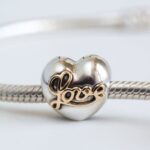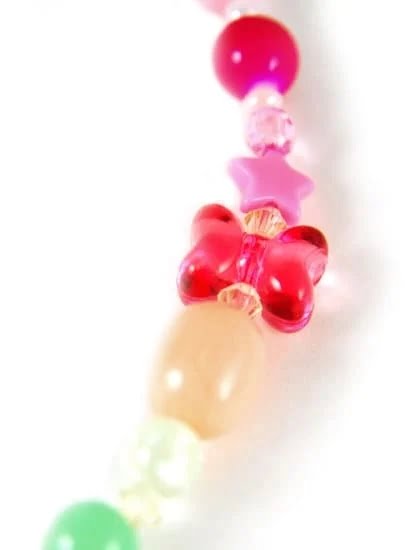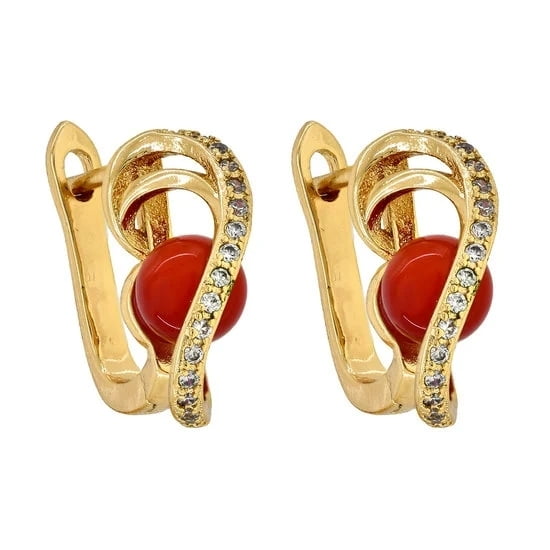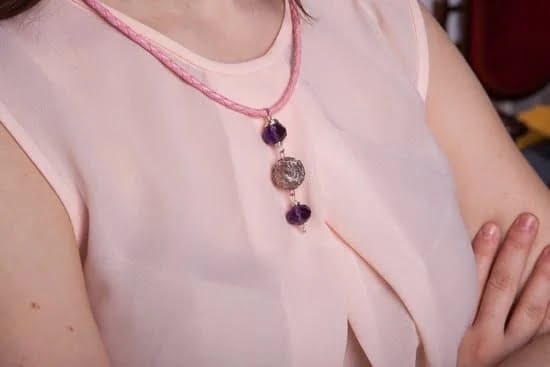How much does a fine jewelry maker make? This is a common question for those considering a career in the industry. Fine jewelry making is a unique and specialized craft that requires a combination of artistic talent, technical skills, and business acumen. In this article, we will explore the income potential for fine jewelry makers, including the average earnings, salary range, and factors that can affect their income.
To become a fine jewelry maker, individuals need to undergo specific education and training. We will delve into the educational requirements and the different paths one can take to enter this profession. Additionally, we will discuss the essential skills and qualities needed for success in fine jewelry making, as well as the types of fine jewelry and their market value.
This article will also cover opportunities for advancement and growth within the industry, along with tips for maximizing earnings as a fine jewelry maker. By exploring these aspects, readers will gain insight into whether a career in fine jewelry making is financially rewarding. Whether you are considering entering this field or are simply curious about the earning potential of fine jewelry makers, this comprehensive overview will provide valuable information.
Education and Training Required to Become a Fine Jewelry Maker
Becoming a fine jewelry maker requires a combination of formal education, specialized training, and hands-on experience. Here are the steps necessary to pursue a career in this field:
- Obtain a high school diploma or equivalent: A strong foundation in math, art, and design is essential for aspiring fine jewelry makers. High school courses in these subjects can provide a solid starting point for further education and training.
- Pursue formal education in jewelry making: Many fine jewelry makers choose to attend a jewelry design or metalsmithing program at an art or design school. These programs typically cover topics such as metalworking techniques, gemstone setting, casting, and CAD/CAM technology.
- Gain hands-on experience through apprenticeships or internships: After completing formal education, aspiring fine jewelry makers often seek out opportunities to work alongside experienced professionals. This hands-on experience allows them to refine their skills and learn about the business side of the industry.
- Continuously update skills and knowledge: The field of fine jewelry making is constantly evolving, with new technologies and techniques emerging regularly. As such, ongoing education and training are vital for staying current and competitive in the industry.
Overall, becoming a successful fine jewelry maker requires dedication, creativity, and a willingness to continually improve one’s craft.
It’s important for individuals interested in pursuing a career in this field to carefully consider the level of commitment required to succeed as well as how much does a fine jewelry maker make on average before deciding to pursue this career path. With proper education, training, and experience, the potential for financial success as a fine jewelry maker is significant.
Skills and Qualities Needed for Success in Fine Jewelry Making
Fine jewelry making is a highly skilled and specialized craft that requires a combination of technical expertise, creativity, and attention to detail. In order to be successful in this field, aspiring fine jewelry makers need to possess certain skills and qualities that will set them apart from the competition.
One of the most important skills needed for success in fine jewelry making is a high level of precision and dexterity. Fine jewelry makers must have the ability to work with small, delicate materials and tools in order to create intricate pieces of jewelry. Attention to detail is crucial in this line of work, as even the smallest mistake can affect the overall quality and value of a piece.
Creativity is also a key quality for fine jewelry makers. The ability to come up with unique designs and concepts is essential for standing out in the competitive world of fine jewelry. Additionally, strong problem-solving skills are necessary for tackling the various challenges that may arise during the jewelry-making process.
Furthermore, patience and perseverance are vital qualities for success in fine jewelry making. The process of crafting fine jewelry can be time-consuming and complex, so individuals in this field must be willing to put in the effort required to produce high-quality pieces.
| Skill/Quality | Description |
|---|---|
| Precision and Dexterity | Ability to work with small, delicate materials and tools |
| Creativity | Capacity for coming up with unique designs and concepts |
| Patience and Perseverance | Willingness to put effort into producing high-quality pieces |
Types of Fine Jewelry and Their Market Value
Fine jewelry encompasses a wide variety of pieces, each with its own unique characteristics and market value. From precious stones to rare metals, the types of fine jewelry available in the market are vast and diverse. Understanding the different types and their individual market value is essential for fine jewelry makers to create pieces that will be both artistically valuable and financially rewarding.
Precious Stones
Precious stones such as diamonds, rubies, sapphires, and emeralds are highly sought after in the fine jewelry industry. The market value of these stones is determined by their carat weight, cut, clarity, and color. Fine jewelry makers who work with precious stones must have a thorough understanding of gemology and be able to identify high-quality stones to create valuable pieces.
Rare Metals
Gold, platinum, and silver are among the most popular rare metals used in fine jewelry making. The market value of these metals fluctuates based on factors such as supply and demand, economic conditions, and geopolitical events. Fine jewelry makers must stay informed about these factors to make strategic decisions about the metals they use in their creations.
Designer Pieces
Designer fine jewelry pieces often command high market values due to their association with renowned brands or individual designers. These pieces can range from statement necklaces to intricately designed bracelets. Fine jewelry makers who specialize in creating designer pieces have the opportunity to demand higher prices for their work based on their reputation and brand recognition.
Understanding the market value of different types of fine jewelry is crucial for fine jewelry makers seeking financial success in this competitive industry. By staying knowledgeable about precious stones, rare metals, and designer pieces, they can create valuable works of art that appeal to discerning clients while maximizing their earnings.
Factors Affecting Income for Fine Jewelry Makers
When it comes to determining how much a fine jewelry maker can make, there are several factors that come into play. Here are some key considerations that can impact the income of a fine jewelry maker:
- Specialization: Fine jewelry makers who specialize in creating high-end, custom pieces or rare gemstone settings often command higher prices for their work compared to those who create more mass-produced designs.
- Experience: As with many professions, experience plays a significant role in the income potential of fine jewelry makers. Those with a long-standing reputation and extensive portfolio may be able to charge premium rates for their craftsmanship.
- Location: The geographical location of a fine jewelry maker can also influence their earning potential. For example, working in a major metropolitan area with a thriving luxury market may result in higher demand and higher prices for fine jewelry.
In addition to these factors, the marketing and networking efforts of a fine jewelry maker, as well as their ability to adapt to trends and consumer preferences, can also impact their income.
Ultimately, while the average earnings and salary range for fine jewelry makers provide useful benchmarks, it’s important to consider these various factors when evaluating the potential income in this industry. Building a successful career as a fine jewelry maker often involves leveraging these factors to maximize earnings and establish financial stability.
Average Earnings and Salary Range for Fine Jewelry Makers
When it comes to the average earnings and salary range for fine jewelry makers, there are several factors that come into play. The income of a fine jewelry maker can vary greatly depending on their experience, skill level, location, and type of employer they work for. In general, however, fine jewelry makers have the potential to earn a substantial income if they are able to establish a strong reputation and client base.
Factors Affecting Income
The income of a fine jewelry maker is influenced by several key factors. One of the most significant factors is their level of experience and skill. Entry-level jewelry makers may earn less than experienced artisans who have honed their craft over many years. Additionally, the location in which a fine jewelry maker operates can also impact their earnings.
Industry Average
According to the Bureau of Labor Statistics (BLS), the median annual wage for jewelers and precious stone and metal workers was $40,870 as of May 2020. However, it’s important to note that this figure represents the median wage for all workers in this category, including those who may not specialize in fine jewelry making. Fine jewelry makers who create high-quality pieces may be able to command higher prices for their work, leading to an above-average income.
Overall, while there is no specific figure that represents how much does a fine jewelry maker make because incomes can vary widely within this industry,, with dedication and perseverance, it is possible to achieve financial success as a fine jewelry maker.
Opportunities for Advancement and Growth in the Fine Jewelry Making Industry
Fine Jewelry Makers have plenty of opportunities for advancement and growth within the industry. Many fine jewelry makers start their careers by working for established jewelry companies or designers to gain experience and build a reputation. As they gain more experience and develop their skills, they may choose to start their own independent business or brand, allowing them to have more creative freedom and potentially earn a higher income.
Another option for advancement in the fine jewelry making industry is to specialize in a specific type of jewelry, such as engagement rings, luxury watches, or custom pieces. By becoming an expert in a particular niche, fine jewelry makers can attract a loyal clientele and command higher prices for their work.
For those looking to take on leadership roles in the industry, there are opportunities to become a design director, head jeweler, or even start an academy to teach the craft to aspiring artisans. Becoming an industry influencer through social media and other platforms is also a way for fine jewelry makers to grow their brand and increase their earning potential.
Overall, there are numerous paths for advancement and growth within the fine jewelry making industry, providing ample opportunities for skilled artisans to increase their income and achieve long-term success.
| Advancement Opportunities | Description |
|---|---|
| Independent Business Ownership | Running an independent jewelry business allows for creative freedom and potential higher earnings. |
| Specializing in Niche Jewelry | Becoming an expert in a specific type of jewelry can attract loyal clientele and higher prices. |
| Leadership Roles | Opportunities include becoming a design director, head jeweler, or starting an academy to teach the craft. |
Tips for Success and Maximizing Earnings as a Fine Jewelry Maker
As a fine jewelry maker, there are several tips and strategies that can help you succeed in the industry and maximize your earnings. One important factor to consider is the quality of materials used in creating your pieces. Using high-quality gemstones, precious metals, and other materials can increase the market value of your jewelry, allowing you to command higher prices for your work.
Another tip for success in fine jewelry making is to stay updated on current trends and customer preferences. Understanding what styles and designs are popular at any given time can help you create pieces that are in high demand, potentially leading to increased sales and profits. Additionally, building a strong brand reputation for producing well-crafted, unique, and innovative pieces can attract a loyal customer base willing to pay a premium for your creations.
Networking and building relationships within the industry are also essential for maximizing earnings as a fine jewelry maker. Connecting with potential clients, retailers, and other professionals in the field can lead to new opportunities for sales and collaboration, ultimately contributing to greater financial success. Finally, considering selling directly to customers through online platforms or at craft shows and events can allow you to retain a larger portion of the profits compared to traditional retail models.
By implementing these tips and strategies into your fine jewelry making business, you can increase your earning potential while also establishing yourself as a successful and respected professional in the industry.
Overall, becoming financially successful as a fine jewelry maker is possible by taking advantage of these tips mentioned above as well as focusing on creating unique pieces that cater to market demands. By doing so one will be able increase their income from this career choice.
Conclusion
In conclusion, the career of a fine jewelry maker can be financially rewarding for those who are passionate and dedicated to their craft. While the amount that a fine jewelry maker makes can vary depending on factors such as experience, skill level, and market demand, the potential for high earnings is certainly there. With the right education, training, and honing of skills, fine jewelry makers have the opportunity to earn a comfortable living and potentially even achieve significant financial success.
It’s important to note that becoming a successful fine jewelry maker takes dedication and continuous improvement. Those who invest in their education and training, develop the necessary skills and qualities, and stay attuned to market trends have a higher likelihood of commanding higher incomes in this industry. Additionally, keeping up with advancements in technology and techniques can also contribute to increased earning potential for fine jewelry makers.
Overall, while it may not be an easy path to success as a fine jewelry maker, the financial rewards can be substantial for those who are willing to put in the hard work. As with any profession, the key to maximizing earnings in this field lies in continuous learning, improvement, and a willingness to adapt to changes within the industry.
For individuals who are truly passionate about creating beautiful, high-quality pieces of art through fine jewelry making, the potential for financial success is certainly achievable.
Frequently Asked Questions
Do Jewelry Makers Make Good Money?
Jewelry makers can make good money depending on their skill level, experience, and the quality of their work. Established jewelry makers with a strong client base or those working for prestigious jewelry companies can earn a comfortable income. Additionally, specializing in high-end or custom designs can also contribute to higher earnings.
What Is the Highest Paying Job in the Jewelry Industry?
The highest paying job in the jewelry industry is often considered to be that of a jewelry designer for a luxury brand or high-end jewelry company. These designers are responsible for creating innovative and intricate designs that command top dollar in the market. Their creativity, expertise, and ability to set trends often result in attractive salaries.
What Is the Highest Salary for a Jewellery Designer?
The highest salary for a jewellery designer can vary widely based on factors such as the designer’s reputation, experience, and the prestige of the company they work for. However, some experienced and renowned jewellery designers working for luxury brands or operating their own successful design businesses have been reported to earn six-figure salaries or even more.
Their exceptional talent and ability to create unique, sought-after designs contribute to their high earning potential within the industry.

Welcome to my jewelry blog! My name is Sarah and I am the owner of this blog.
I love making jewelry and sharing my creations with others.
So whether you’re someone who loves wearing jewelry yourself or simply enjoys learning about it, be sure to check out my blog for insightful posts on everything related to this exciting topic!





